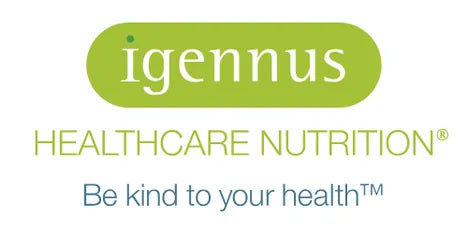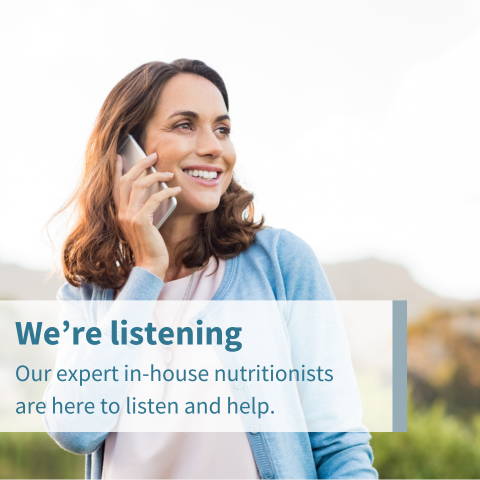Many of us now choose a plant-based diet for the promise of fewer chronic health issues; indeed, many feel amazing for a while after making the switch. However, while a balanced vegan diet full of fruits and vegetables, nuts & seeds and legumes tends to provide more fibre and higher levels of some vitamins and minerals, others may either not be supplied in sufficient amounts or require careful planning to get enough of. This can lead to deficiencies months and years down the line, eroding gains and causing health issues.
In part 1 of this series to optimise vegan health through nutrition, we looked at the vital role omega-3s play and how vegans can ensure a steady supply by taking a daily algae oil supplement. Of course, vegans aren’t the only ones who need to make sure they’re getting optimal nutrition – all of us need quality protein, healthy fats, a variety of brightly coloured vegetables and fruit, and micronutrients, such as magnesium & selenium. In this second part, we’ll look at specific vitamins and minerals that followers of a plant-based diet tend to be deficient in.
For vegans living in the UK, we recommend a few essential supplements, which are omega-3s, vitamin B12, vitamin D and iodine. Here’s why:
- Omega-3s were covered in depth in part 1 of this series. For heart, brain, eye and immune health and inflammatory disorders, it’s vital that vegans take a supplement containing the long-chain omega-3s EPA & DHA, as short-chain omega-3s, such as flax, have such a poor conversion to long-chain EPA & DHA in the body
- Vitamin B12 is important for a host of biochemical reactions, and supplementation is a must for all vegans as there is no reliable plant source of this vitamin. While body stores can take years to deplete, a deficiency can cause nerve and brain problems, as well as anaemia, and some consequences are irreversible. For most people, it is advisable to choose a methylcobalamin supplement, rather than cyanocobalamin, which contains cyanide and is more difficult to absorb
- Vitamin D is found in small amounts in animal foods and sun-exposed mushrooms, but the majority is produced when our skin is exposed to summer sunlight. It’s, therefore, almost impossible for our bodies to make enough between October and March in the UK. Igennus’s approach is to include a modest dose in our vegan-friendly multivitamin for year-round support, which can be topped up during the winter months with the bioavailable Pure & Essential Vegan D3, sourced from lichen
- Iodine is a mineral vital for thyroid function and is found in small and variable amounts in vegetables, depending on the iodine content of the soil they’re grown in. In some countries, table salt is iodised, so people don’t need to supplement; however, this is not the case in the UK, which is why a daily dose of 150mcg is recommended
- Calcium – vital for strong bones and teeth, it’s available in many plant foods but can be difficult to absorb. Lightly steaming oxalate-rich greens, such as spinach, can aid uptake, as well as soaking and sprouting nuts, seeds and legumes, or fermenting wholegrains. It’s easy to top up your daily intake with a calcium-fortified plant milk and firm, calcium-set tofu. Consider calcium supplements if you’re not eating these foods, or want to specifically target bone health. Post-menopausal women (who naturally experience accelerated bone loss) and teenagers have the highest calcium requirements. Supplemental calcium should, ideally, be paired with magnesium and the vitamins D3 and K2 (such as Calcium & Magnesium Algae Mineral Complex) to ensure that the mineral makes its way into the bones rather than blood vessels and soft tissues, where it tends to do more harm than good
- Iron in high doses can cause negative side effects, so only take amounts above the daily reference intake if you have a proven iron deficiency (we recommend Iron Bisglycinate). Although the non-haem form found in plant foods is less bioavailable, absorption can be significantly improved by including a rich source of vitamin C with each meal, e.g. add citrus to your oats, tomato to your lunch and lemon to your kale smoothie! Good to know: caffeine decreases iron absorption, so drink coffee and black tea between rather than with meals
- Vitamin K2 is important for heart, bone & tooth health, with an uncommon (at least in the West) fermented soya food called natto representing the only reliable vegan food source. However, it’s possible to convert vitamin K1 commonly found in plant foods to K2, if inefficiently. This happens both in the body itself and in the gut via a healthy gut microbiome. So while healthy vegans who eat plenty of leafy greens and cruciferous vegetables may make enough vitamin K2, those targeting heart, bone and tooth health may want to take a supplement in the MK-7 form to top up their levels
- Zinc is present in wholegrains, nuts & seeds and legumes, but it’s the mineral most affected by being bound to phytates naturally occurring in these foods. It’s worth focusing on food preparation techniques, such as soaking, sprouting, fermenting and cooking, to absorb adequate amounts of this mineral. For those of you who don’t have time for this or who eat a less healthy plant-based diet, you may want to consider supplementing with zinc – it’s often present in multivitamin & mineral supplements
Digging deeper
If you want to get a better understanding of whether your vegan diet provides you with everything you need, consider tracking your food intake for a few days with an app such as Cronometer or MyFitnessPal. This is not something you need to do for prolonged periods of time; it should simply give you an idea of which areas of your vegan diet you may need to improve.
To find out more about your personal nutrition status, you could also consider blood tests, especially if you have been vegan for some time. A good place to start is to check your omega levels by ordering an Opti-0-3 home test kit from Igennus. This test needs a few drops of blood and offers comprehensive personalised results regarding your omega status, including which supplements and doses are best for you. Getting your vitamin D level checked from time to time is wise if you’re taking high doses of the vitamin long-term or think you may be deficient. Your GP can usually do this.
If you’ve been on a plant-based diet for a few years, you may also want to check your vitamin B12 level to ensure that the supplement you’re taking is really doing the trick. Choose a test that measures active B12 or holotranscobalamin (only the B12 bound to the transcobalamin transport protein can be used by the body) rather than total B12, which is measured by the standard test used by the NHS. Measuring total B12 only picks up severe B12 deficiencies; your active B12 may still be low while your total B12 can be in the normal range. Iron tests can be ordered by your GP or privately if you’re experiencing symptoms of deficiency, such as extreme fatigue, shortness of breath and pale skin.
When adopting a vegan diet, ensure you are carefully planning and monitoring your diet, and using supplements to top up any shortfalls. For general vegan health, Igennus recommends Pure & Essential Vegan Omega-3 & Astaxanthin and Pure & Essential Multivitamin & Minerals, topped up with Pure & Essential Vegan D3 in winter. If you need additional support, our team of nutritionists is happy to answer any questions about your personal needs via email, phone or Live Chat.








